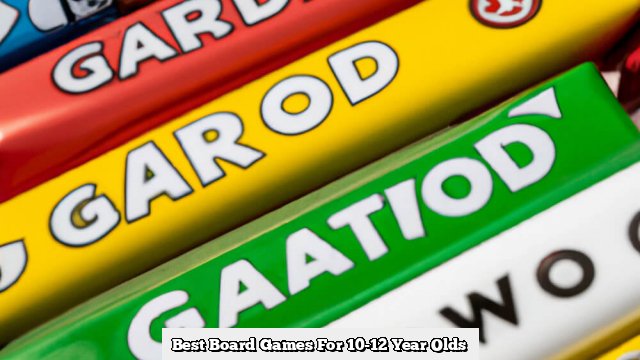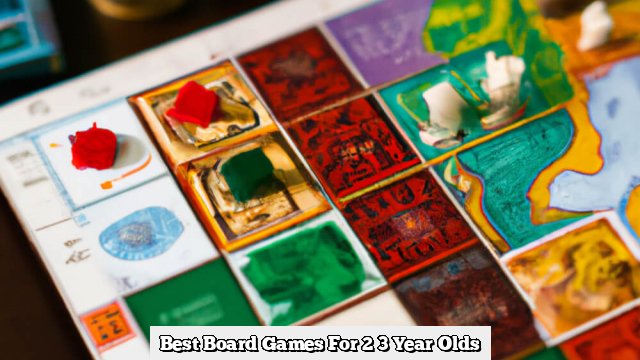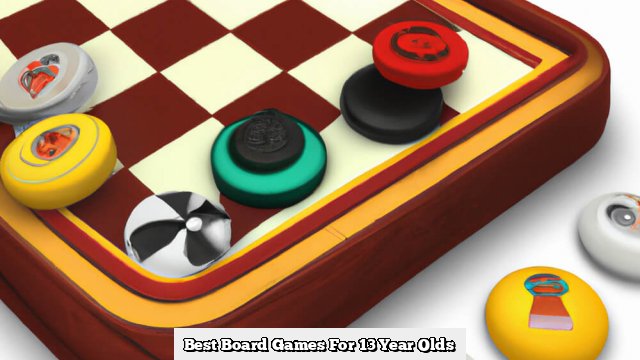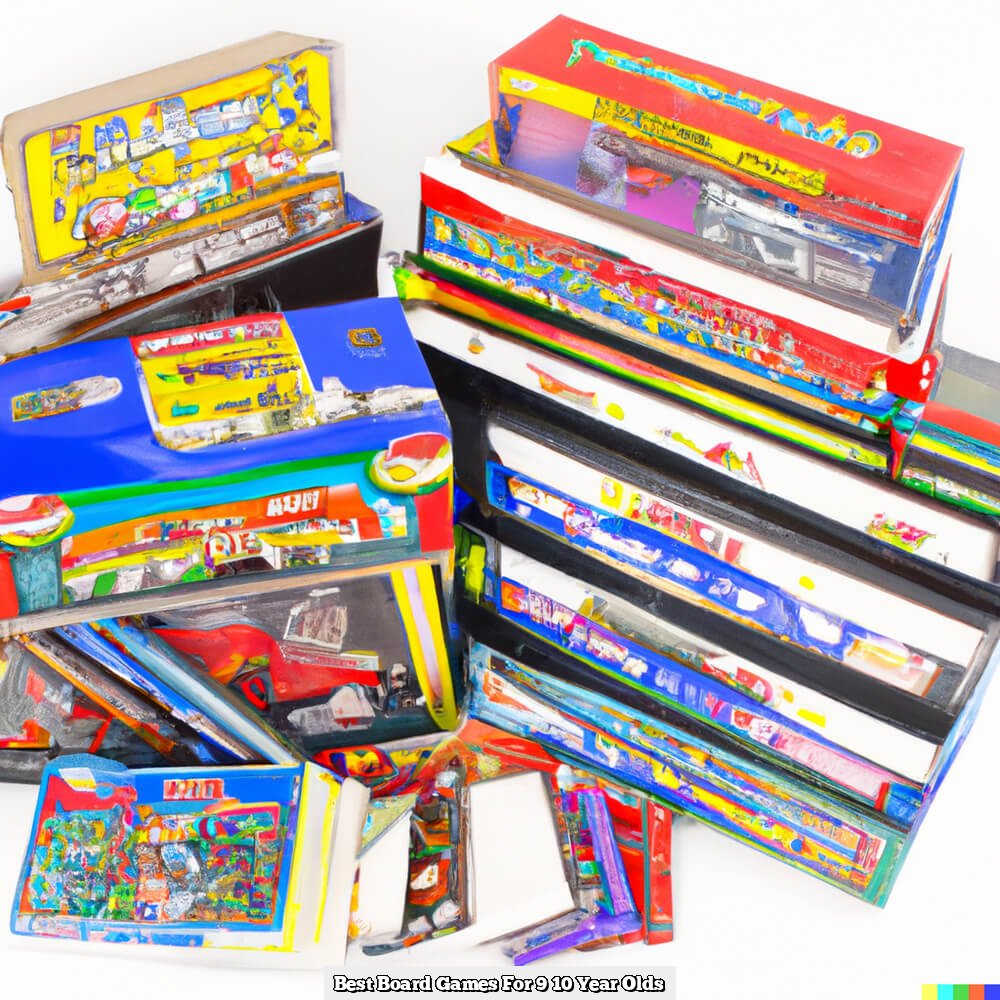Introduction
Board games offer an excellent way for 5-6 year olds to have fun and learn during playtime. They can help children to practice important skills like problem solving, memory, social development, and developing esteem. Plus, kids get to practice taking turns and following rules – both important early learning skills in their development. At a young age, board games provide excellent opportunities to interact with parents and/or peers; this connection helps children learn how to accept victory and loss gracefully in a safe context.
Board games also offer the perfect opportunity for children of all ages to use critical thinking skills as they work together toward a common goal. For example, cooperative board games allow everyone on the team to think through different strategies until the desired outcome is achieved. Younger players will further enhance their creative thinking by creating stories with whatever game or toy they are playing with. Not only does this aid cognitive development, but this type of imaginative play helps refine motor skills as well! Additionally, board games contribute significantly to early math learning – from counting objects and coins in money-based games to realizing strategies that involve numbers or logical reasoning tasks such as advanced matching and sorting exercises or puzzles. The best part is that many of these types of activities are hidden within enjoyable experiences that make kids unaware that their minds are being challenged!
Benefits of Board Games
Board games offer a unique opportunity for children of the 5-6 year old age range to develop social skills, logical thinking, and imagination. In the early primary school years, children are just beginning to understand what it takes to come together with others and make choices as a group. Board games provide an outlet for them to practice this. By discussing strategies, taking turns, and resolving any disputes that arise peacefully, youngsters learn how to be part of a team and interact with one another in a positive way.
Moreover, board games provide support for children in mastering some of the most basic logic principles, such as math skills and problem solving. Through manipulating pieces and completing puzzles or missions within the game’s ruleset, five- and six-year olds learn to approach tasks from different angles and generate inventive solutions themselves. Lastly, games bring out young players’ creativity by encouraging them think outside the box while allowing them stay closer to real life dynamics they may find familiar – surrounded by other friendly competitors or characters – rather than participating in completely abstract activities. Together these traits further their personal growth as well as foster healthy relationships with peers overall.
Variety of Board Games
Finding appropriate board games for 5-6 year olds can be tricky. However, there are some great options to choose from. For younger children aged 5-6, many families enjoy classic board games such as Snakes and Ladders and Hi-Ho Cherry-O. These games are engaging yet simple enough that they can play without too much difficulty. Other popular favorites in this age range include card/memory games, matching games, cooperative games, and various quiz-style spatial puzzlers like the popular game Rush Hour. Every child’s interests will be different so you may have to try out a few different types of board game before settling on just one that really grabs their attention; trial a few!
Other fun genres of games for this age range include abstract strategy titles such as Blokus and Qwirkle which require more thinking than basic roll-and-move types of games. Cooperative board games such as Team Highlights – The Cave Adventure also make great choices because they help foster team spirit rather than competition between players. Additionally, if your youngsters love animals, then animal or nature themed games like Sleeping Queens or Kingdomino may fit the bill. Board Games can bring children together in a way nothing else can ,so try to pick something that appeals to everyone’s tastes and make sure the rules are simple to understand for the whole family!
Quality Matters
When it comes to selecting board games for your 5-6 year old, quality matters. Not only do you want to make sure the game is colorful and engaging, but you need to make sure there is educational value as well ” something this age group needs around every corner.
Safety should also be a key factor in your decision making process. Make sure you choose games with no small parts or pieces that a child of this age can choke on. Additionally, stay away from sharp edges or corners on the game boards for the same reason.
When it comes to finding an appropriate game for this age group look for products specifically designed for 5-6 year olds. These are usually labeled as such and provide enough challenges and activities that appeal to kids without providing too much difficulty (or boredom). For example, one popular game has kids compare shapes and colors while another challenges them to match alphabets or count objects on cards ” all perfect activities that meet the needs of this age group.
No matter what board game you end up buying, remember not just how long the kids will play but also how long they’ll engage their minds with interesting activities that are both challenging yet feel like fun. A good educational value is key here: look for games that teach problem-solving skills, critical thinking, language building or other brain-building ideas so they get some learning out of each play session. Finally, focus on ones with cooperative elements so everyone can have fun together!
Tips for Choose the Best Board Game
Five and six year olds are no longer content with just the occasional card game. They’re now looking for more exciting board games to keep them busy. To help you find the best board games for these age groups, here are some tips to consider when searching.
1. Check Reviews – Don’t be fooled by what’s on the box; instead, look at reviews from other parents or websites to determine which board games work well for five and six year olds. This is a great way to see how quickly kids learn the rules and get engaged in the gameplay.
2. Look For Bright Design – When shopping for board games, look for something that engages young minds with bright colors, fun shapes, and easy-to-understand pictures. By keeping design in mind you can invest in a game that your child won’t grow out of after only a few plays!
3. Consider Pricing – Many board games can range anywhere from $10 – $50 depending on quality, components, and gameplay time. Try to find an option that gives your child hours of playtime without breaking the bank! With these tips in mind, you’re sure find something your child will love without having to spend too much money!
Our Top Picks For Fun and Learning
Board games are an excellent way to introduce children, aged 5-6 years old, to the joys of gaming while they learn and grow. Classics such as Chutes & Ladders, Snakes & Ladders, and Trouble provide simple rules and fun game play. These beloved classics are great for reinforcing basic number recognition and counting skills! For young ones eager to put their reading skills to the test, there are many wonderful word games available like Bananagrams or Scrabble Junior.
For those looking for something more creative, there are plenty of options out there too! Memory-type games like Spot It or Zingo are perfect for sharpening your child’s memory and resourcefulness. Other creative board games can help them learn about strategy and problem solving. Games like Sushi Go!, The Flow of History and Forbidden Desert offer intriguingly themed challenges sure to keep curious minds engaged for hours on end!
Additional Resources
Subscription services such as Hopster and Kidlo, both of which are focused on children 5-6 years old, offer a range of activities that include board games. Hopster features over 200 educational games, reinforcing a variety of key skills and concepts such as counting and problem solving in an entertaining way. Kidlo also provides various educational activities targeting toddlers to young children in the age range which include board games designed to help improve hand-eye coordination, critical thinking, and other important skills.
In addition to subscription services that offer educationally-minded board games for 5-6 year olds, there are a wealth of apps available as well. An especially popular resource is ABCMouse Early Learning Academy which is full of fun educational kids’ games that can help improve basic skills including reading and math. A similar app aimed at pre-schoolers is CogniFit Kids Brain Training which includes tasks such as auditory perception, problem solving and proactivity suitable for the target age group. Finally CoolmathJr offers plenty of fun math-related board game activities designed specifically for children aged 5-6 and can even track their progress.
Summary
Board games are a great alternative to electronic games for children aged 5-6. Board games can provide important learning opportunities, promote interactions with peers, and encourage problem-solving skills. Board games encourage communication between players and improve social skills, as they often require cooperation. They also help hold kids’ attention spans far longer than electronic games since they are both physical and mentally stimulating. In addition, board games help kids learn simple math concepts like counting money or matching shapes for different colors.
Additionally, many board games are designed to introduce basic reading and writing skills, making them ideal for young learners. As the game progresses, players must read instructions aloud about how to play the game or answer questions posed by other players. This language-building activity actually helps children commit words to memory that will build their literacy over time. Furthermore, there’s less stress around board game playing since it’s usually an internal battle between player choices rather than physical activities like in some team sports”so younger children can experience this kind of competition without fear of failure or comparison to other players. Finally, parents have more control over which types of games their youngsters play when opting for board instead of electronic versions ” meaning you can choose ones with educational themes tailored toward the interests of your young learner alongside those that add entertainment value alone!

I love playing all kinds of games – from classics like Monopoly to modern favourites like Ticket to Ride.
I created this blog as a way to share my love of board games with others, and provide information on the latest releases and news in the industry.





